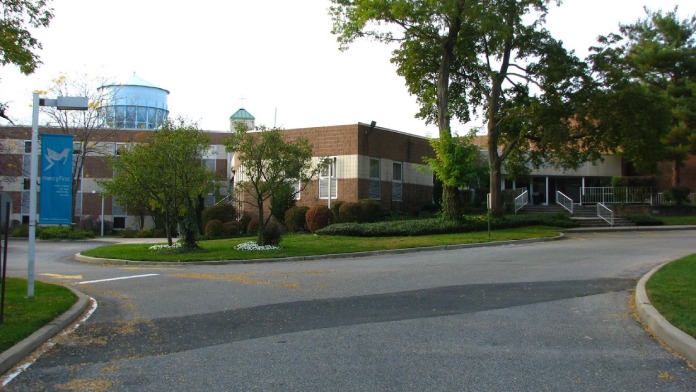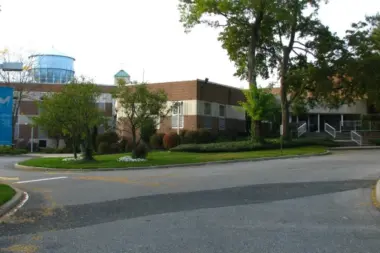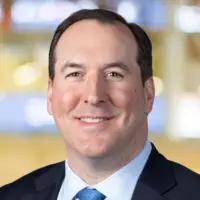About MercyFirst – McKeown House
MercyFirst has been providing human and social services to children and families in need across New York for over a century. Their services are geared toward keeping families together while providing a safe and supportive environment where children can thrive. Their McKeown House is located in Syosset, New York.
Here, they provide short-term residential care for children and adolescent victims of trauma, including unaccompanied migrant children. This program offers a safe and nurturing environment to support healing and development.
They also operate group homes in the community to support children and families involved in the child welfare and juvenile justice systems. The agency provides foster care services and works to place children, especially those from teen parents, in a stable and loving home.
Specialized programs like Bridges to the Future help foster care youths prepare for the future via vocational skill training, life skill coaching and educational support. The agency supports adoption processes to ensure permanent family connections as well. They also offer preventive services, mental health care and other community-focused programs. The goal is to help families and prevent the need for foster care placement. Their services are typically trauma-informed, family-oriented and gender appropriate. It’s all about laying a strong foundation for a better tomorrow and helping families and children realize a brighter future. MercyFirst’s culture of care and professional excellence makes them a haven, particularly for teens experiencing severe trauma from abuse, neglect or abandonment. The agency strengthens families and promotes general community wellbeing. Their genuine commitment to providing trauma-informed care is evident from their Certification by the Sanctuary Institute. They’re also accredited by the Council on Accreditation with residential programs licensed by either the NYS Office of Children and Family Services or the NYS Office of Mental Health. MercyFirst is a proud LGBTQIA+ inclusive and affirming agency. They also participate in the Federal Breakfast/Lunch Snack Program. The agency particularly has a strong presence across three of the five boroughs of New York City including Brooklyn, Queens and Staten Island. They also have facilities across Long Island. This facility on Covenant Road in Syosset within Nassau County is their administrative office. You can link to all their service locations for assessment and the requisite support from here. Celebrated Services and Inclusive Care
Latest Reviews
Rehab Score
Gallery


Other Forms of Payment
Medicaid is a state based program that helps lower-income individuals and families pay for healthcare. Medicaid covers addiction treatment so those enrolled can use their coverage to pay for rehab. When a program accepts Medicaid the client often pays very little or nothing out of their own pocket.
Private insurance refers to any kind of healthcare coverage that isn't from the state or federal government. This includes individual and family plans offered by an employer or purchased from the Insurance Marketplace. Every plan will have different requirements and out of pocket costs so be sure to get the full details before you start treatment.
Self-pay involves paying for treatment out of your own pocket. You can use savings or credit, get a personal loan, or receive help from family and friends to fund your treatment. If you don't have insurance or your insurance plan doesn't cover a specific program, self-pay can help ensure you still get the care you need.
Addiction Treatments
Levels of Care
Residential treatment programs are those that offer housing and meals in addition to substance abuse treatment. Rehab facilities that offer residential treatment allow patients to focus solely on recovery, in an environment totally separate from their lives. Some rehab centers specialize in short-term residential treatment (a few days to a week or two), while others solely provide treatment on a long-term basis (several weeks to months). Some offer both, and tailor treatment to the patient's individual requirements.
Treatments
Mental health rehabs focus on helping individuals recover from mental illnesses like bipolar disorder, clinical depression, anxiety disorders, schizophrenia, and more. Mental health professionals at these facilities are trained to understand and treat mental health issues, both in individual and group settings.
Clinical Services
Cognitive Behavioral Therapy (CBT) is a therapy modality that focuses on the relationship between one's thoughts, feelings, and behaviors. It is used to establish and allow for healthy responses to thoughts and feelings (instead of unhealthy responses, like using drugs or alcohol). CBT has been proven effective for recovering addicts of all kinds, and is used to strengthen a patient's own self-awareness and ability to self-regulate. CBT allows individuals to monitor their own emotional state, become more adept at communicating with others, and manage stress without needing to engage in substance abuse.
Whether a marriage or other committed relationship, an intimate partnership is one of the most important aspects of a person's life. Drug and alcohol addiction affects both members of a couple in deep and meaningful ways, as does rehab and recovery. Couples therapy and other couples-focused treatment programs are significant parts of exploring triggers of addiction, as well as learning how to build healthy patterns to support ongoing sobriety.
Dialectical Behavior Therapy (DBT) is a modified form of Cognitive Behavioral Therapy (CBT), a treatment designed to help people understand and ultimately affect the relationship between their thoughts, feelings, and behaviors. DBT is often used for individuals who struggle with self-harm behaviors, such as self-mutilation (cutting) and suicidal thoughts, urges, or attempts. It has been proven clinically effective for those who struggle with out-of-control emotions and mental health illnesses like Borderline Personality Disorder.
Experiential therapy is a form of therapy in which clients are encouraged to surface and work through subconscious issues by engaging in real-time experiences. Experiential therapy departs from traditional talk therapy by involving the body, and having clients engage in activities, movements, and physical and emotional expression. This can involve role-play or using props (which can include other people). Experiential therapy can help people process trauma, memories, and emotion quickly, deeply, and in a lasting fashion, leading to substantial and impactful healing.
Research clearly demonstrates that recovery is far more successful and sustainable when loved ones like family members participate in rehab and substance abuse treatment. Genetic factors may be at play when it comes to drug and alcohol addiction, as well as mental health issues. Family dynamics often play a critical role in addiction triggers, and if properly educated, family members can be a strong source of support when it comes to rehabilitation.
Group therapy is any therapeutic work that happens in a group (not one-on-one). There are a number of different group therapy modalities, including support groups, experiential therapy, psycho-education, and more. Group therapy involves treatment as well as processing interaction between group members.
In individual therapy, a patient meets one-on-one with a trained psychologist or counselor. Therapy is a pivotal part of effective substance abuse treatment, as it often covers root causes of addiction, including challenges faced by the patient in their social, family, and work/school life.
Trauma therapy addresses traumatic incidents from a client's past that are likely affecting their present-day experience. Trauma is often one of the primary triggers and potential causes of addiction, and can stem from child sexual abuse, domestic violence, having a parent with a mental illness, losing one or both parents at a young age, teenage or adult sexual assault, or any number of other factors. The purpose of trauma therapy is to allow a patient to process trauma and move through and past it, with the help of trained and compassionate mental health professionals.
Staff

Renée Skolaski
President & CEO

Joanne Cordaro
Chief Administrative Officer

Achim Kretschmer
Chief Technology Officer

Floaria Ladja
Executive VP, Performance & Quality Improvement

Katya Lanfant
Chief of Staff

Madeline MartÍnez
VP, Mission Integration

Kerri Sneden
VP, Resource Development

Brian Hecker
Board Chair
Contact Information
525 Convent Road
Syosset, NY 11791